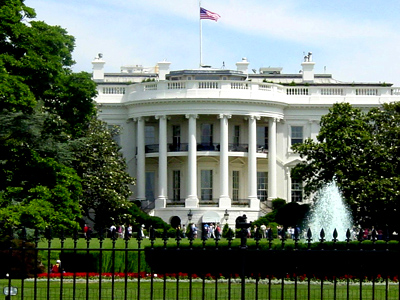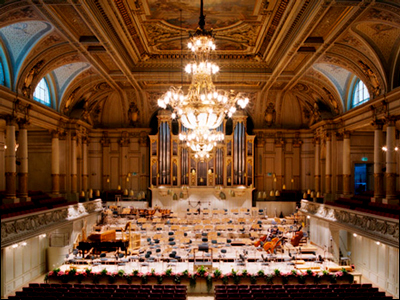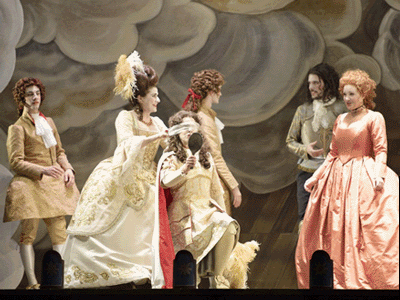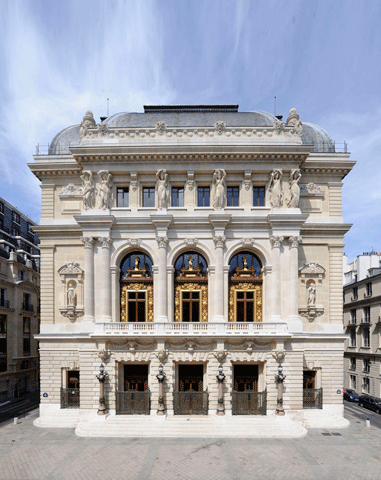By Brian Taylor Goldstein, Esq.
On January 30, 2017 we posted an update to clarify what was going on (at least as of Sunday, January 29, 2017) with regard to President Voldemort’s now infamous January 27, 2017 Executive Order and how it impacts the arts. As you may imagine, as the result of lawsuits and procedural confusion, the situation continues to develop…often hourly. As our office continues to address issues and implications on the front lines, we are relying upon the American Immigration Lawyers Association, The League of American Orchestras, the US Performing Arts Task Force, and other vital organizations who continue to monitor and report on the situation at all levels.
While there are still more questions than answers, the situation is starting to normalize somewhat…until they change. Nonetheless, as of today, here are the most accurate answers to the most frequently asked questions:
Does President Voldemort’s Executive Order and travel ban apply to Citizens of the 7 countries (Iran, Iraq, Libya, Somalia, Sudan, Syria, and Yemen) who also hold US Visas or Green Cards?
- Yes.
- The Department of State has indicated that it is “provisionally” (ie: temporarily) revoking all visas and green cards for nationals from the 7 countries named in the January 27 Executive Order.
- This does not affect visa holders or green card holders who are currently in the US. They can stay.
- If a green card holder was out of the US as of January 27, 2017 or travels out of the US after January 27, 2017 and attempts to return, then such individuals ARE subject to the travel ban. However, green card holders are eligible for national interest waivers consistent with the provisions of the Executive Order. According to the Executive Order, absent significant derogatory information indicating a serious threat to public safety and welfare, green card status will be a dispositive factor in case-by-case determinations of whether or not a green card holder may re-enter.
- So far, only two green card holders from the list of 7 countries have been denied entry: One, who was denied based on a criminal record, and another individual chose to return to Canada and withdrew his request for entry.
- If a visa holder was out of the US as of January 27, 2017 or travels out of the country after January 27, 2017, they will not be allowed to re-enter at this time.
Does President Voldemort’s Executive Order and travel also apply to students who are citizens of the 7 countries (Iran, Iraq, Libya, Somalia, Sudan, Syria, and Yemen)?
- Yes.
- F1/J1/M1 visas are currently temporarily suspended. Individuals who were in the US at the time of the signing of the executive order are not affected by the order.
- Students who were out of the US as of January 27, 2017 or travel out of the US after January 27, 2017 and attempt to return will not be allowed to return at this time. The Department of State is evaluating whether those who are precluded from returning as a result of the Executive Order will be considered to have maintained their status as F1 or M1 students.
Does President Voldemort’s Executive Order and travel ban apply to individuals who are citizens of the 7 countries (Iran, Iraq, Libya, Somalia, Sudan, Syria, and Yemen) but who also are citizens of other countries (ie: dual citizens)?
- No.
- Travelers are being treated according to the passport they present at the time of entry into the US. For example, if they hold both Iranian and Canadian passports, then, absent significant derogatory information indicating a serious threat to public safety and welfare, they WILL be allowed to enter.
- However, if an individual holds a visa, the visa stamp MUST be in a passport that is not from one of the 7 countries. For example, if an artist with an O-1 holds both Iranian and UK passports, the O-1 visa must be in the UK passport.
Does President Voldemort’s Executive Order and travel ban apply to individuals who may have been born in one of the 7 countries (Iran, Iraq, Libya, Somalia, Sudan, Syria, and Yemen), but who are no longer citizens?
- No.
- However, individuals who were born in these and other countries considered to be “at risk”, or still have relatives in these countries, have always been subject to additional security processing and delays at US consulates and upon entry to the US. This will continue.
Does President Voldemort’s Executive Order and travel ban apply to individuals who may have been merely visited or performed in one of the 7 countries (Iran, Iraq, Libya, Somalia, Sudan, Syria, and Yemen)?
- No.
- However, individuals who have visited these and other countries considered to be “at risk”, have always been subject to additional security processing and delays at US consulates and upon entry to the US. This will continue.
What is the impact of this on artists and individuals from other countries?
- So far, none.
- They will be subject to the same inconstant policies and tortuously interpreted regulations as always.
What is the impact of this on USCIS or the processing times at USCIS Service Centers?
- So far, none.
- Both USICS Service Centers continue to suffer from high staff turnover and lack of funding. This continues to result in longer processing times and an increase in Requests for Evidence (RFE).
- While the California Service Center “tends” to process petitions more quickly than the Vermont Service Center, we continue to advice clients to anticipate standard processing to take 3 – 4 months at both service centers. Do not rely on the anecdotal information of others to the contrary!
What is going to happen next?
- Who the hell knows? However, according to two “leaked” provisional/proposed Executive Orders, here’s what we anticipate:
- Further restrictions and clarifications on the limitations of B-1/B-2 (visitor/business) visas and those eligible to enter on visa waivers (Ie: ESTA) with respect to what they can and cannot do in such status. We’ve have said this 1000 times, but we keep getting questions about this: Artists cannot perform on visitor visas and/or on ESTA status. Not for free. Not for education. Not for schools. Not for training. Not if no tickets are sold. Not no way! Not no how! If any US manager, agent, presenter, venue, or academic institutions tells you otherwise—RUN AWAY!
- Additional restrictions and oversight of students eligible for “practical training” during or after their course of study.
- Additional countries being added to the list of banned nationalities.
Lastly, because the situation can change at any time, it is critical that you consistently check with reliable sources for updates and developments before making any travel decisions, applying for visas, or booking foreign artists. We strongly recommend:
2) The USCIS website: www.uscis.gov
3) The US Department of State website: www.travel.state.gov
4) The US Customs and Border Patrol website: www.cbp.gov
5) Licensed immigration attorneys
________________________________________________________________
For additional information and resources on this and other legal, project management, and business issues for the performing arts, visit ggartslaw.com
To ask your own question, write to lawanddisorder@musicalamerica.com
All questions on any topic related to legal, management, and business issues will be welcome. However, please post only general questions or hypotheticals. Questions will be answered ONLY in future blogs. GG Arts Law reserves the right to alter, edit or, amend questions to focus on specific issues or to avoid names, circumstances, or any information that could be used to identify or embarrass a specific individual or organization. All questions will be posted anonymously and/or posthumously.
__________________________________________________________________
THE OFFICIAL DISCLAIMER:
THIS IS NOT LEGAL ADVICE!
The purpose of this blog is to provide general advice and guidance, not legal advice. Please consult with an attorney familiar with your specific circumstances, facts, challenges, medications, psychiatric disorders, past-lives, karmic debt, and anything else that may impact your situation before drawing any conclusions, deciding upon a course of action, sending a nasty email, filing a lawsuit, or doing anything rash!



